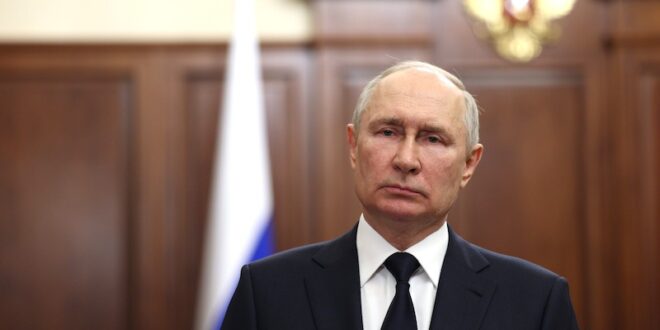Many analysts and politicians believe the greatest risk to the territorial integrity of the Russian Federation will come immediately after Vladimir Putin leaves the scene, Aleksandr Kynyev says; but that view is wrong: the real danger is likely to arise several years later if the transitional government misplays the situation.
The reason for that conclusion, the independent Moscow political scientist argues, is that the Russian Federation of today is fundamentally different than the USSR of 1991 was (moscowtimes.ru/2023/06/27/politicheskie-izmeneniya-v-rossii-buduschego-kogda-zanimatsya-regionami-a47170).
On the one hand, the country is overwhelmingly dominated by one ethnic group, the Russians; and except for a handful of republics in the North Caucasus and elsewhere, the titular nationalities are less dominant now than was the case of the union republics of 1991. And on the other, Putin’s policies have destroyed and then blocked the reemergence of regional elites.
The destruction of regional elites has been the centerpiece of Putin’s policies since the beginning of his time in the presidency, a policy that has involved not only the elimination of elections for governors and their appointment by the center but also the reduction in the powers of the regions relative to the center.
Among the heads of federal subjects today, 56 percent are outsiders; and among their deputies, this figure is “about 28 percent,” Kynyev says. Governors can’t appoint any of their key officials without clearance from the center and thus Moscow can prevent the formation of any regional power base.
The one place where regionalist attitudes remain significant is in regional legislative assemblies, the political scientist says. “But they are everywhere integrated into the ranks of the United Russia Party” which Moscow controls. “Theoretically,” that could change with a weakening of the center; but that is anything but likely.
Of course, Kynyev continues, “everything could be changed if the federal authorities themselves begin to change the rules of the game at the federal level” in the course of the transitional period.
“The institutions of that period cannot fail to be authoritarian simply because with the highest possible degree of probability, the new powers will be institutionally a continuation of the current authoritarian Russian political model. That is, for a certain period, this will be the old system with new faces as leader or leaders, analogous to the situation between 1953 and 1957.”
According to Kyyev, “this will certainly be a new personalized system. Possibly, it won’t want radical changes and will only partially change the system under a new style. But if it wants more radical changes, then certain forks in the road will appear.” If those in power choose the wrong ones, then the danger of disintegration will increase.
If those in the transitional government try to hold on to power for too long, that could prove “a fatal error as far as the stability of the system is concerned.” They need to act quickly so that “changes in the first instance will come from the center,” thus giving the center new legitimacy relative to the regions.
But there are real risks. “In attempting to strengthen and gain popularity, the new federal powers certainly will begin to change governors, especially unpopular ones. The new populist appointees … can become real new regional leaders, having to begin with serious credits of social trust and low anti-ratings,” Kynyev says.
“The biggest risk of all,” however, “will arise if the federal transitional government, fearing new elections for itself decides that it would be best to start with local and regional elections and then, only after them, hold elections at the federal level.” Such a strategy would “create conditions for a new collapse which objectively do not exist now.”
Elections at the federal level should take place first so as to strengthen the center. Only after they are held should voting take place in the regions to form new and legitimate governments there. That will result in hard bargaining but not in secession, in contrast to a situation if regional voting took place before federal.
“Unless a legitimate and credible power emerges at the center,” Kynyev continues, “then precisely regions led by more legitimate authorities may begin to demand full independence” as happened in Yugoslavia and in the USSR.
He adds: “The most important thing in the development of new rules of the game must be an understanding that for the stability of the federal government, it is better to have in the regions not miniature autocracies but regional systems of checks and balances, lest new ‘regional barons’ emerge as happened in the 1990s.”
And Kynyev concludes: “There is no greater threat to federal unity that the emergence of small regional dictatorships and vice versa: if there are independent forces at the regional level, they will inevitably fight with each other to gain influence and thus appeal to the center, effectively strengthening it.”
 Eurasia Press & News
Eurasia Press & News




